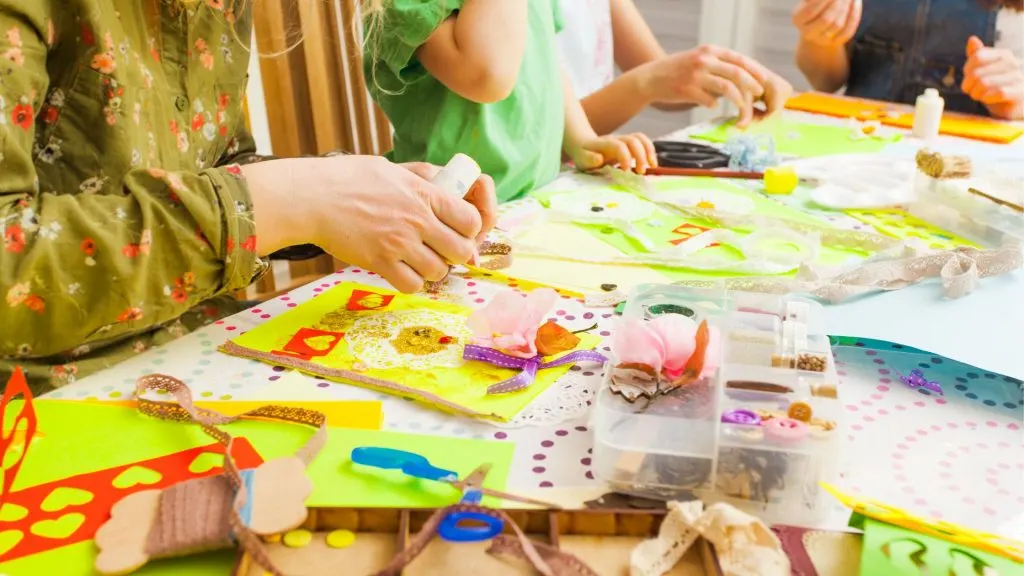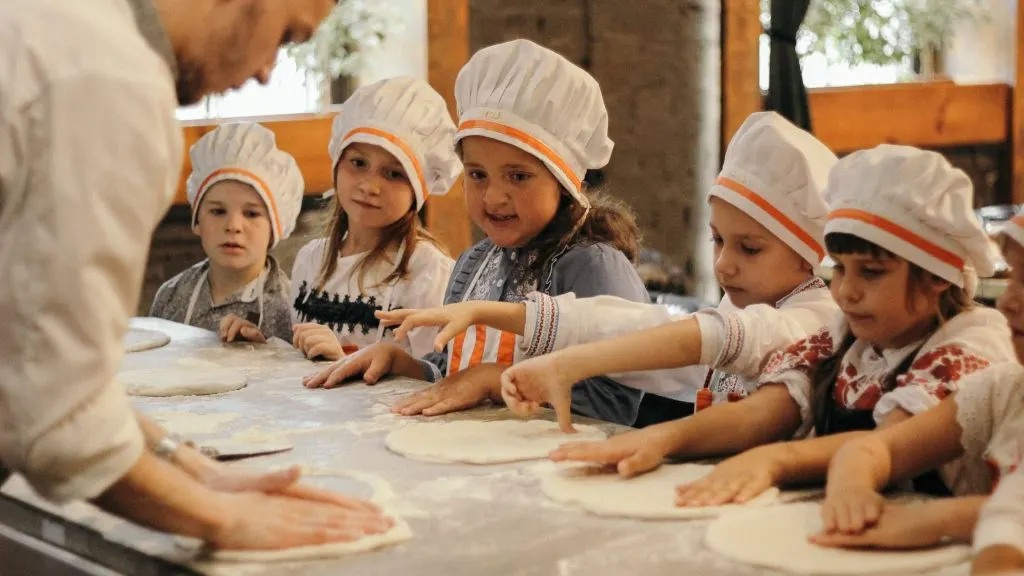Starting a small business can be an exciting venture for children and nurture their entrepreneurial spirit. Young people are absolutely capable of learning valuable business skills by launching small business ideas for kids. It’s not only about earning money, it’s also a learning experience that imparts valuable life skills like responsibility, financial literacy, and problem-solving. Encouraging young entrepreneurs can start as simply as setting up a lemonade stand, but with creativity and guidance, the possibilities expand far beyond traditional ventures.
As a parent or mentor, understanding kid-friendly entrepreneurship is key. Be mindful what kids enjoy and can handle, teaching them the basics of business, and supporting them as they learn to make decisions and overcome obstacles. This journey not only boosts their confidence but also lays the groundwork for future success, whether they continue in business or apply these lessons to other areas of their lives.
Combining passion with practicality may seem daunting, but with the right approach, kids can turn their ideas into action. They’ll learn to market their products or services effectively, understand the importance of customer satisfaction, and recognize the significance of ethical business practices. Navigating through challenges, they gain resilience and adaptability—essential traits for any successful entrepreneur.
Key Takeaways
- Encouraging a business venture can teach children responsibility and financial skills.
- Kid-friendly businesses should align with their interests and maturity level.
- Young entrepreneurs can learn from both successes and setbacks on their business journey.
Skip to:
- 11 Small Business Ideas
- Business Tips
- Making Ideas Real
- Financial Literacy
- Marketing Strategies
- Dealing with Problems
- Legality
- Growing the Business
Understanding Kid-Friendly Entrepreneurship
Kid-friendly entrepreneurship combines the playful energy of young children with the foundational skills for a future in business. Exploring small business ideas for kids not only fosters their entrepreneurial spirit but also equips them with valuable life skills.
Discussion On What Makes A Business Idea Kid-Friendly
A kid-friendly business idea should tread the fine line between being fun, engaging, and safe. Typically, these ideas:
- Are easy to understand and set up.
- Require minimal initial investment or resources.
- Involve activities that young kids can manage with minimal supervision.
Good business ideas for kids start with a good idea and evolve into so much more. Each business should be an avenue for them to learn about responsibility, money management, and the basics of customer service. A great business idea not only captivates family members but also resonates well within the community, encouraging support and fostering a sense of accomplishment.
See Also: Financial Freedom Through Kid Entrepreneurship

The Role Of Parents In Guiding And Supporting
Your involvement as a parent is crucial in guiding your child’s kid business idea to fruition. Here’s what you can do to help:
- Offer Guidance: Assist in creating a business plan that aligns with their interests and capabilities.
- Provide Support: Be there to supervise and step in when necessary, ensuring safety and compliance with any local guidelines.
- Encourage Learning: Turn each step into a learning opportunity, from setting prices to understanding profit and loss.
It’s essential to strike a balance between providing support and letting your child take the reins. This balance allows young entrepreneurs to truly experience the journey of running their own small venture, setting the foundation for future success and nurturing family bonds through cooperative efforts.
When you click on an Amazon link from my site the price is the same as if you searched for it yourself, but I get compensated. As an Amazon Associate I earn from qualifying purchases.
11 Small Business Ideas For Kids
Allowing kids in elementary school, middle school, and high school to launch their own business is a great way for you to learn valuable skills and make some money. Here are eleven kids business ideas tailored for young entrepreneurs.
#1 Lemonade Stand
One of your first small business ideas for kids could be a classic lemonade stand. It’s simple to set up, all they need is a pitcher of homemade lemonade, a table, and some cups. This venture teaches you the basics of customer service while quenching your neighborhood’s thirst. The lemonade business is a good business idea to have during summer break when your children’s potential customers are the neighborhood’s younger kids or older kids.
#2 Handmade Craft Seller
If you kids love creating, selling their own crafts could be your calling. Use platforms like Etsy or attend local craft fairs to sell their handmade goods. From jewelry to paintings, their artistic talents can flourish as they learn to manage an online store. This is one of the small business ideas for kids that can improve their creativity. Your kids could also sell unique crafts like a coloring book, greeting cards, or flea market display racks.
I share products I love with you through affiliate links, which means if you buy something through one of these links, I get a small commission at no extra cost to you.

#3 Lawn Care Service
Caring for neighbors’ yards is one of the perfect small business ideas for kids if you live in the suburbs, where many potential customers have sprawling yards. Offer a full lawn care service, including weeding and raking leaves. This kind of yard work not only brings in extra cash but also builds your reputation for reliability and hard work.
#4 Pet Sitting Or Dog Walking
For animal lovers, pet sitting or dog walking is one of the perfect odd jobs. You can help busy neighbors by looking after their pets during vacations or by taking their dogs for daily walks. This job requires responsibility and a love for animals, building client trust.
#5 Baking And Selling Homemade Treats
If your children got a talent for baking, why not turn it into a business? They can sell their homemade cookies or cupcakes at a school event, a birthday party, local markets, or an online platform. Always ensure that you follow food safety guidelines and get the necessary permissions, especially on school grounds, birthday parties, and other special events.

#6 Online Content Creator
Harness the power of social media and start your kid’s own YouTube channel or blog. Share your passions with the world, whether it’s playing video games, reviewing comic books, showing off old toys, or teaching everyday facts in a creative way. Remember, being a content creator means being consistent and engaging with your audience. This is one of the best small business ideas for kids to build their self-confidence when speaking in public.
#7 Tutoring Or Teaching Skills
Are your kids great at math or a whiz at the piano? Offer tutoring services or music lessons to kids in your community. This is not only a rewarding experience but also a chance to hone your skills in teaching and communication.The startup costs is low among kid entrepreneurs looking to be a tutor.
#8 Car Wash Service
Have your kids start a car washing service in the neighborhood. They can provide washing and detailing services right in your customers’ driveways. This business requires energy and attention to detail, but it’s a great way to stay active and earn money. This is one of the suitable small business ideas for kids for urban areas. The car wash business also does not cost as much as other ways of earning extra money.

#9 Custom T-Shirt Designing
If your kid is an aspiring graphic designer, creating custom T-shirts could be their niche. Use online platforms to sell your designs or take orders for personalized shirts. This online business sparks your kid’s creativity and marketing skills at a young age. T-shirt designing can also a fun way to give your kids a head start in earning a name for their first business if they decide to pursue a designer career in the future.
#10 Recycling And Upcycling
Have your kids run an environmentally friendly business by starting a recycling or upcycling service. Collect recyclables from neighbors or turn old items into something new and sellable. It’s profitable and one of the small business ideas for kids that is good for the planet.
#11 Photography Business
Young people with a keen eye on scenery or for a tech-savvy kid who knows their way around editing programs can start their photography service. This is one of the best business ideas for special occasions like weddings or birthdays. Local businesses may also look for younger children with photography skills for their promotion campaign or when participating in local events.

Tips on Successful Small Business Ideas for Kids
In guiding young entrepreneurs, your support and realistic benchmarks are pivotal. Learn how to effectively assist and set achievable goals for your child’s business venture.
Guidance On How Parents Can Help
Be a Coach: Your role in their business success hinges on being supportive yet instructive. Teach them about financial literacy, knowing how to manage money is essential for any successful entrepreneur. Help them develop communication skills, strong effective communication is the backbone for negotiating and selling.
Provide Resources: Equip them with the necessary tools, whether it’s a space to work, initial seed money, or educational materials. Learning resources can include books on entrepreneurship or online tutorials about their chosen business area.
Importance Of Setting Realistic Goals
Create a Business Plan: Guide your child in outlining a detailed plan. This should map out the steps they’ll take, resources they’ll need, and define their target audience. A clear plan helps maintain focus and direction.
Set Achievable Milestones: Break down the journey into smaller, measurable goals. Whether it’s making their first sale, learning a new skill, or expanding their product line, celebrating these milestones will fuel their motivation and dedication to hard work.

Turning Ideas into Action
When you have a great business idea, the next step is to bring it to life. Start with a plan. Jot down what you want to do, how you’ll do it, and what you’ll need. This doesn’t have to be fancy—a simple list or a drawn-out storyboard can lay the groundwork for your kid-sized business.
Goal Setting for Young Entrepreneurs
Set small, achievable goals. These are your stepping stones to bigger achievements. Begin with what you can accomplish today or this week, like learning a new skill or making your first sale. As each goal is met, celebrate and then set new, slightly bigger goals.
The Essentials of Business Planning
Outline the basics of your operation with a mini-business plan. Answer these key questions:
- What are you selling or offering?
- Be specific about your product or service.
- Who are your customers?
- Know who would enjoy what you have to offer.
- Where will you sell?
- Decide whether it’s online, at fairs, to neighbors, etc.
Take action on feedback and always look for ways to improve. What works today might need tweaking tomorrow. Adaptability can turn a small project into a thriving business.
Remember, the journey from idea to business is exciting and full of learning. Stay curious, be persistent, and your business idea will soon be a reality that you’re proud of.
Financial Literacy for Young Entrepreneurs
Introducing your kids to the fundamentals of financial literacy can set them on a path to future entrepreneurial success. Start with the basics of money management. Teach them how to handle cash by setting up a mock store or using board games that imitate real-world financial situations.
Simple Accounting for Kids involves understanding key principles like income, expenses, and profit. Encourage them to track their earnings from chores or a lemonade stand using a simple ledger or a friendly mobile app designed for children.
Finally, the cornerstones of investment and savings shouldn’t be overlooked. Use clear and engaging examples to illustrate how money can grow over time. Help them set savings goals and understand the value of patience and long-term thinking in business. Here’s a quick breakdown:
Teach Your Kids to Budget
- Income: Recognize different ways to earn money.
- Expenses: Differentiate between wants and needs.
- Savings: Allocate a portion of income to savings.
- Time management: Time is always limited.
Investment Basics for Children
- Discuss the concept of making money work for them.
- Use relatable examples like saving for a high-priced toy.
- Explain how consistent savings can lead to greater rewards.
Additional Reading: Make Your Kid a Millionaire by Setting Up Their Retirement Account
No matter how much money they are earning it’s still a great opportunity to create good money habits. Small business owners who can manage small budgets because of a strong foundation of financial literacy have a much easier time handling large budgets down the line.

Marketing and Promotion Strategies
When you embark on your small business journey, it’s crucial to understand how to showcase your products or services. Start with basic marketing techniques like word-of-mouth, where you tell friends and family about your business. They can spread the word further, creating a ripple effect.
Local community boards, both online and physical ones at places like libraries, provide a platform to announce your offerings. Create colorful, eye-catching flyers with clear information about what you’re selling and how to contact you.
Using social media and community networks requires a careful approach. Ensure you discuss with a parent or guardian about setting up accounts for business purposes. Keep it professional by posting appealing images and updates of your products or services, respond promptly and politely to inquiries. Embrace platforms like Instagram or Facebook, where visual appeal is key, but always prioritize online safety.
Remember to engage with your audience by asking for their thoughts and feedback. This engages customers and makes them feel valued. To attract more interest, create fun contests or offer small discounts for sharing your posts. Your visibility and customer base can grow through these interactive and friendly strategies.
Overcoming Challenges and Setbacks
When you encounter challenges in your small business journey, view them as opportunities to grow and improve. Learning from failures is crucial. Instead of getting discouraged, examine what went wrong, and use that knowledge to make better decisions in the future.
Persistence is your key to overcoming setbacks. Staying committed despite obstacles shows true entrepreneur spirit. Adaptability is equally important, be ready to adjust your plans and strategies as you learn and as circumstances change.
Handling Failures
- Analyze the cause: Take time to understand why something didn’t work.
- Learn the lesson: Identify the key takeaways from the experience.
- Apply new strategies: Implement what you’ve learned to avoid repeating the same mistakes.
Encouraging Persistence
- Set achievable goals: Break down tasks into manageable steps to maintain momentum.
- Celebrate small wins: Recognize your progress to stay motivated.
- Stay focused on your vision: Remind yourself why you started and keep that end goal in sight.
By approaching challenges with a learning mindset and adapting to new situations, you’re on your way to growing a resilient and successful business. Remember, every successful entrepreneur has faced and overcome setbacks—so can you.
Legal and Ethical Considerations
When you’re starting a small business as a kid, it’s important to understand the legal framework around it. You have to consider registering your business and learning about any permits or licenses required. It’s your responsibility to comply with local, state, and federal laws which might include taxes and child labor regulations.
Ethical business practices are equally important and involve being honest with your customers, suppliers, and competitors. You should practice fair trading, protect customer privacy, and ensure your products are safe. Social responsibility might mean thinking about how your business impacts the community and environment.
Fostering a business that supports and gives back to your community can be part of your journey. Encouraging recycling, donating a portion of profits to charity, or volunteering are ways to show social responsibility. This not only benefits society but also boosts your business reputation.
Growing the Business
When you’re ready to take your kid’s business to the next level, consider strategies for expansion that are both creative and practical. Start by identifying your current strengths and where there is room to grow. Introducing new product lines or services is a great way to keep your offerings fresh and appealing.
Encourage InnovationBe open to new ideas that can diversify your business portfolio. You can brainstorm with your young entrepreneur about products or services that complement the existing ones. For instance, if face painting is a hit, why not add balloon artistry or craft workshops to your list of services? This encourages regular customers to try something new while attracting a different audience.
Scale SmartlyExpanding your kid’s business doesn’t have to be a daunting task. Here’s how you can do it effectively:
- Reinvest Profits: Plow a portion of earnings back into the business to fund growth.
- Improve Online Presence: Utilize social media and a user-friendly website to reach a wider audience.
- Network Locally: Attend community events to raise awareness and create partnerships.
Remember, you don’t have to scale quickly, take small steps to ensure quality isn’t compromised. Keep in mind that word of mouth is powerful, satisfied customers are the key to organic growth. By staying dedicated and keeping the customer experience at the forefront, your child’s business is poised for success.




Leave a comment